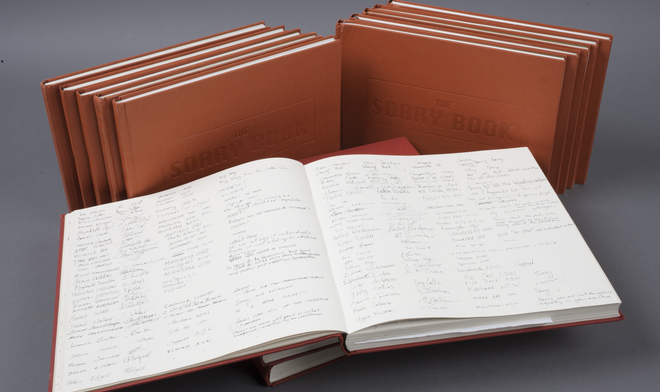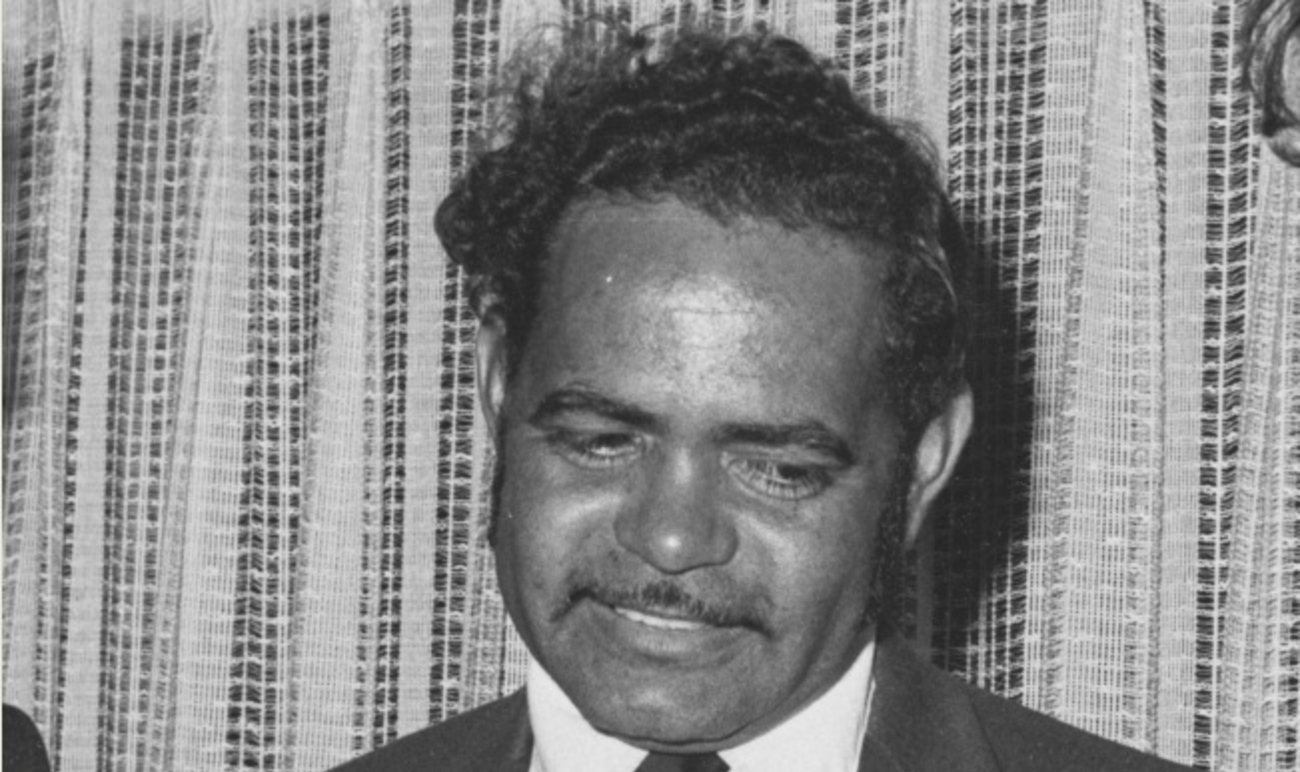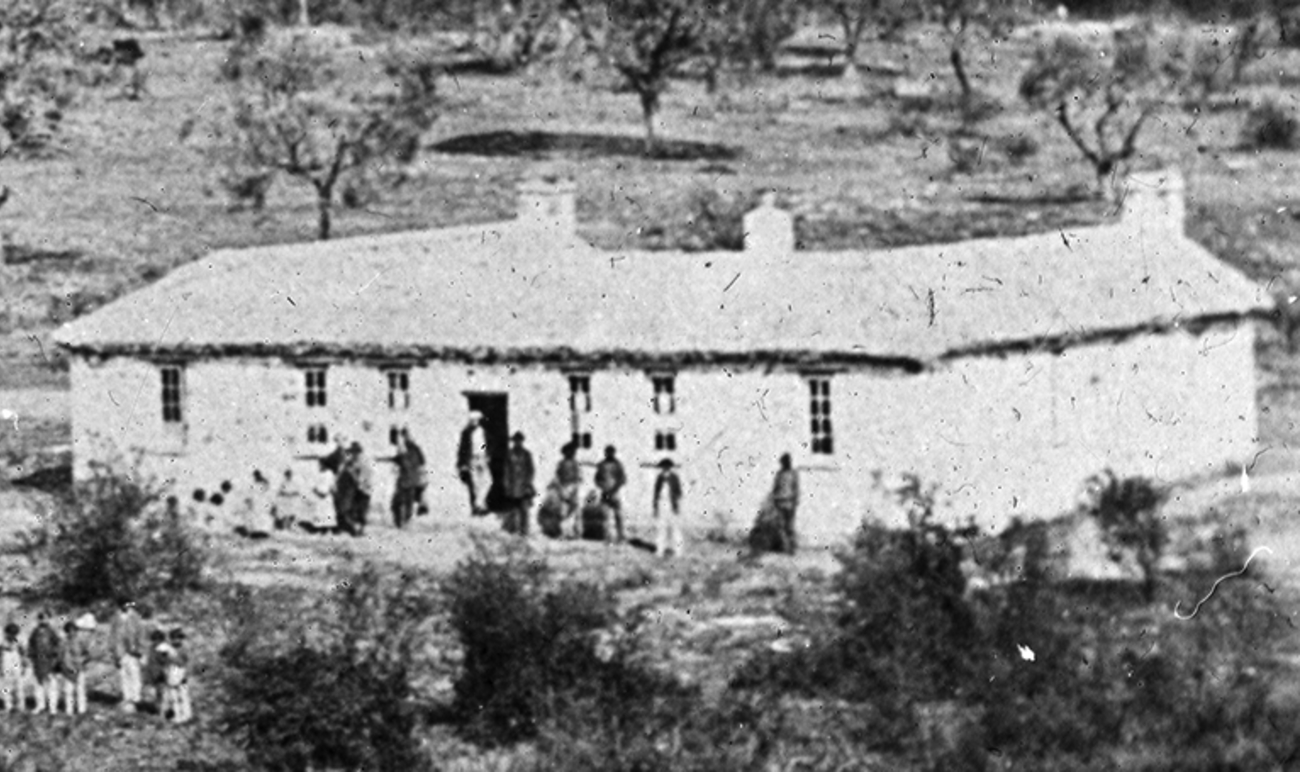Veronica Brodie’s story
Please note that this blog contains the images and voice of someone who has passed away.
This post is dedicated to the thousands of stolen children who have come home, or are still searching, or sadly, for those who never found their way home.
Special thanks to the Brodie family for insight into their mother’s life and supplying the photographs featured in this blog.
In 1997, the Australian Human Rights and Equal Opportunities Commission (HREOC) released the ‘Bringing Them Home report – A National Inquiry into the Separation of Aboriginal and Torres Strait Islander Children from Their Families’. For many Australians, this was the first time that they learnt of the extent of the trauma, grief and loss experienced by survivors of forced removals from family, known as the ‘Stolen Generations’.
From 1844 to 1963 various Acts of Parliament in South Australia placed all Aboriginal children under the guardianship of the State. Many Aboriginal children, mainly of mixed backgrounds, were arbitrarily removed from their parents and communities. They were rarely allowed contact or reunited with their parents. Often they were abused physically, psychologically and sexually (Hall 1997).
There are very few Aboriginal and Torres Strait Islander peoples whose lives have not been touched by practices of forced removal. Some of their stories made their way into the AIATSIS Collection long before the Bringing Them Home Inquiry. This story highlights one such collection.
The Jerry Schwab Collection of sound recordings consists of nine audio cassettes and transcripts that document the stories of forced removal and survival of Aboriginal people from different parts of South Australia between the 1940s and the 1960s.
The recordings were part of Schwab’s PhD research and were collected by Schwab and Dulcie Chantrill in Adelaide between 1984 and 1986. The collection has historical, social and cultural significance and was supplied to the Bringing Them Home Inquiry. This collection also includes interviews with Margaret Brusnahan, Spencer Weetra, Kenny Hampton, Avis Gale, Doris Kartinyeri, Dora Hunter, Margaret Hayes, Geraldine Mason and Raylene Zuidan.
The recordings cover topics such as the impacts of removal, surveillance at the hands of the Aborigines Protection Board, police harassment, exploitation in the work force and survival tactics.
Veronica's story
Ngarrindjeri/Kaurna woman Veronica Brodie (1941-2007) was removed from Raukkan/Point McLeay to Tanderra Mission in 1955. She was a widely respected elder and Aboriginal rights activist in Adelaide and a leading figure in the establishment of the Adelaide Aboriginal Orchestra, the Centre for Aboriginal Studies in Music, the Aboriginal Sobriety Group, Warriappendi School, the Warraparinga Cultural Centre, Camp Coorong and the Lartelare Glanville Land Action Group. She fought tirelessly although unsuccessfully against the development of a bridge to Kumarangk (Hindmarsh Island) held to be secret/sacred by Ngarrindjeri women.
Veronica’s oral history recording helps to shine a light on the day to day impacts of living under the laws of the time which resulted in children being removed from their families. Veronica shares how her world could change dramatically and quickly depending on who was interpreting the laws and what her racial classification was deemed to be.
Listen to Veronica describing the details of her removal from Raukkan, the reasons given for her removal, what it felt like for her and her family on that day, and the situation she encountered at Tanderra Mission upon her arrival.
Listen to Veronica describing the details of her removal from Raukkan, the reasons given for her removal, what it felt like for her and her family on that day, and the situation she encountered at Tanderra Mission upon her arrival.
A common theme that emerges from the stories of the Stolen Generations is the strength of the relationships between those experiencing similar conditions.
During her time at Tanderra, there were some notable residents including Dora Hunter (pianist and child care worker whose oral history is also in this collection); Faith Thomas nee Coulthard (nurse and first Aboriginal public servant in South Australia and the first Aboriginal woman to represent Australia on a cricket field); and Lowitja O’Donoghue (first Aboriginal registered nurse at the Royal Adelaide Hospital). Many of the relationships forged in homes lasted a life time, such as that between Brodie and Dora Hunter.
Listen to Veronica describing the care and support she received from some of the older residents at Tanderra.
Listen to Veronica describing the care and support she received from some of the older residents at Tanderra.
The year 1962 brought with it the end of the assimilation policy. This policy’s aim was to absorb Aboriginal people into white society.
In her oral history recording, Veronica talks about the effects that the end of the ‘assimilation policy’ had on her and her family. Veronica reflects on the treatment she experienced as her racial category changed at various times throughout her life from ‘half-caste’ to ‘white’ to ‘Aboriginal’.
‘I said here is your piece of paper, and I tore it up (referring to her exemption certificate), I said all those years, I said you thought you exempted me I said you forgot the colour of my skin was black, I said you didn't change me at all. I said I still had my family and my home…’
Veronica Brodie talks about receiving her exemption centre.
The recordings of these personal testimonies in the Schwab Collection highlight the suffering endured by Aboriginal and Torres Strait Islander peoples under the Commonwealth, state and territory Aboriginal protection and welfare laws and policies. One of the recommendations from the Bringing Them Home Report was that governments should apologise to Indigenous Australians for past wrongs including forced removals.
The National Apology to the Stolen Generations was delivered on 13 February 2008.
More about this item
Further reading and sources
- Brodie, Veronica 2002, My Side of the Bridge, Wakefield Press, Adelaide
- Finding Your Family
- Find and Connect 2018, History and Information About Orphanages, Children’s Homes and Other Institutions
- Healing Foundation 2018, Healing Foundation
- Hollinsworth, D et al 2003, ‘Aboriginal Missions in South Australia’, Nunkuwarrin Yunti of South Australia Inc, Adelaide
- Hall, A 1998, A brief history of the laws, policies and practices in South Australia which led to the removal of many Aboriginal children, Department for Family and Community Services, Adelaide
- Native Welfare Conference 1961, The policy of assimilation: decisions of Commonwealth and State Ministers at the Native Welfare Conference, Canberra, January 26th and 27th, 1961, Australian Government Printer, Canberra


